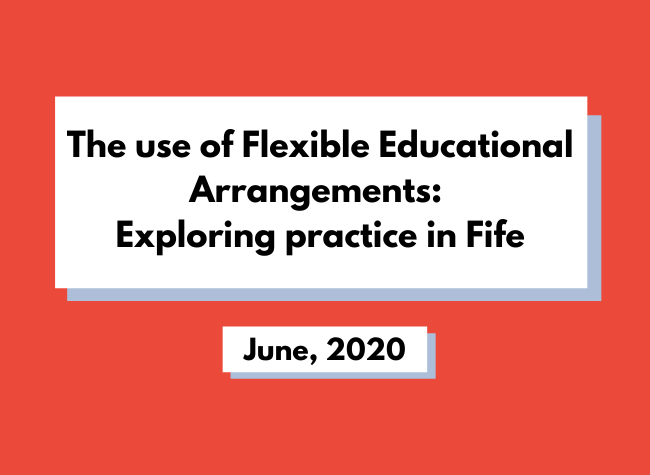Findings from a small-scale exploratory research project on the use of Flexible Educational Arrangements[1] in Fife published today by the Poverty Alliance provides important insights into young people and their families’ experiences of part-time school timetables. This research is particularly timely given the current debate about the impact of Covid-19 on education, and planned combinations of home and school learning.
This small-scale research reveals the challenges for education services managing Flexible Educational Arrangements for young people receiving additional levels of support, including getting the right support put in place to support young people to be able to maintain their education, the impacts on young people’s educational attainment as well as the pressures faced by families.
The experiences of learning for households within this study will have parallels with the issues faced by many families during the lockdown period and when schools return part-time in August. As the Scottish Government continues to work on delivering an education recovery plan under the Covid-19 Education Recovery Group and local authorities plan ahead for the opening of schools on a part-time basis, a new opportunity emerges to bring about innovative thinking and learning experiences and support for our most disadvantaged families and to work collectively to reduce the educational attainment gap.
This research identifies principles and factors for consideration in the delivery of Flexible Educational Arrangements for young people in Fife local authority which also has wider implications for Scotland as a whole. Recommendations include a need for clear guidance and information for parents and their children on a young person’s timetable (e.g. who is responsible for what and when) as well as the involvement of key partner agencies (e.g. third sector organisations) in the planning of a young person’s timetable.
The current crisis will in time provide unique insights to the experiences of young people being disrupted from a formalised school environment for a prolonged period and we must recognise this experience will not be shared equally. Despite the best efforts of the education sector there will have been additional complexity and pressures for families living on a low income and/or experiencing other vulnerabilities. A recent briefing on the impact of lockdown on attainment and disadvantage in Scotland’s schools highlighted the impacts of inequality in digital access and challenges with home learning environments on young people’s educational attainment, stating that ‘schools will return in August with even larger poverty-related attainment gaps’. Wider work is required to understand both the prevalence of Flexible Educational Arrangements in Scotland as well as the longer-term impacts of new models of education provision on families during the pandemic.
[1] A Flexible Educational Arrangement is a reduced timetable for a child/young person, as a result of a decision made by a school and/or parents/carers and is not a formal exclusion from school. Known formally as Flexible Educational Arrangements and Approved Flexible Packages but may also be referred to as part-time timetables or flexi-schooling.


Enter your email address to receive regular e-updates about our work. If at any time you want to stop receiving these, simply contact us. We’ll keep your details safe and won’t share them with any other organisations for their marketing purposes. For full details see our Privacy Policy.